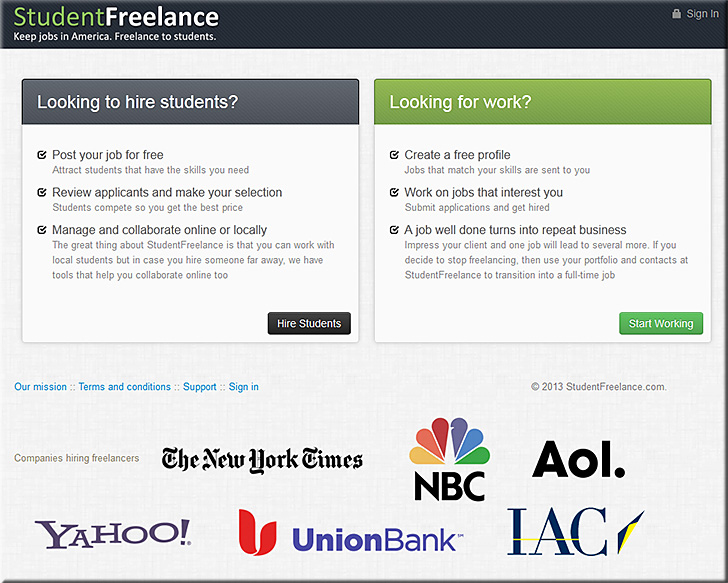Half of us may soon be freelancers: 6 compelling reasons why — from LinkedIn.com by Shane Snow
Excerpts (emphasis DSC):
The cost savings and flexibility of a non-salaried workforce often make business sense, but the model requires the workers to suddenly become businesspeople. We wanted to help our writer and editor friends continue doing what they were good at, without having to deal with the stress of finding work, getting paid on time, and marketing themselves on their own. And we were not the only ones who saw the wave coming. Communities for designers and other creative talent have helped these freelancers make it on their own for several years now.
…
And where it’s clear that the majority of creative people will be freelance before long, all signs point to other jobs one day following suit. This will mean huge things for the domestic and global economy, and it will give an enormous number of people increased flexibility, responsibility, and stress.
Freelancers are de-facto entrepreneurs, which means all of us need to learn to think and act like startups.
From DSC:
This is why I think we should help our youth develop their own businesses — or at least have some exposure to running their own business. In high school and in college, we should help our youth begin their own businesses, driven by their passion for a particular discipline/area. The business may or may not make it — that’s not the point. They need to get their feet wet with experimentation, entrepreneurship, business fundamentals, innovating, and pivoting.
Other articles that corroborate the main point I — and the above author — are trying to get at:
- 40% of America’s workforce will be freelancers by 2020 — from qz.com by Jeremy Neuner
- From article on WashingtonPost.com
Because definitions are fuzzy, various studies estimate the percentage of independent workers and sole proprietors at 31 percent, 7.4 percent, and 14.5 percent. No matter how it’s tallied, the freelance tide is rising. -
From article on gigaom.com
The company (oDesk) also released other stats in an infographic, including these factoids:- There are now 4 million freelancers on oDesk
- These collectively list 2,389 skills in the past year
- and they have taken more than 2.6 million tests to back up those skills claims
.
Addendum on 8/15/13:
- The New Freelance Economy: How Entrepreneurship Is Disrupting Unemployment — from forbes.com by Dorie Clark and Will Weinraub
Excerpt:
According to government statistics, 7.4% of Americans are unemployed today. That’s over and above the nearly 90 million Americans who are reportedly not in the labor force. Every presidential race in recent memory has had our nation’s unemployment rate as a key topic of discussion. However, as we look at these statistics, we should first ask ourselves how these numbers are actually being calculated. Could we be missing something?
…
Today, what we consider to be a “job” has changed, and it’s crucial that we take these new trends into account we when discuss issues related to unemployment – and how we should go about fixing it.









